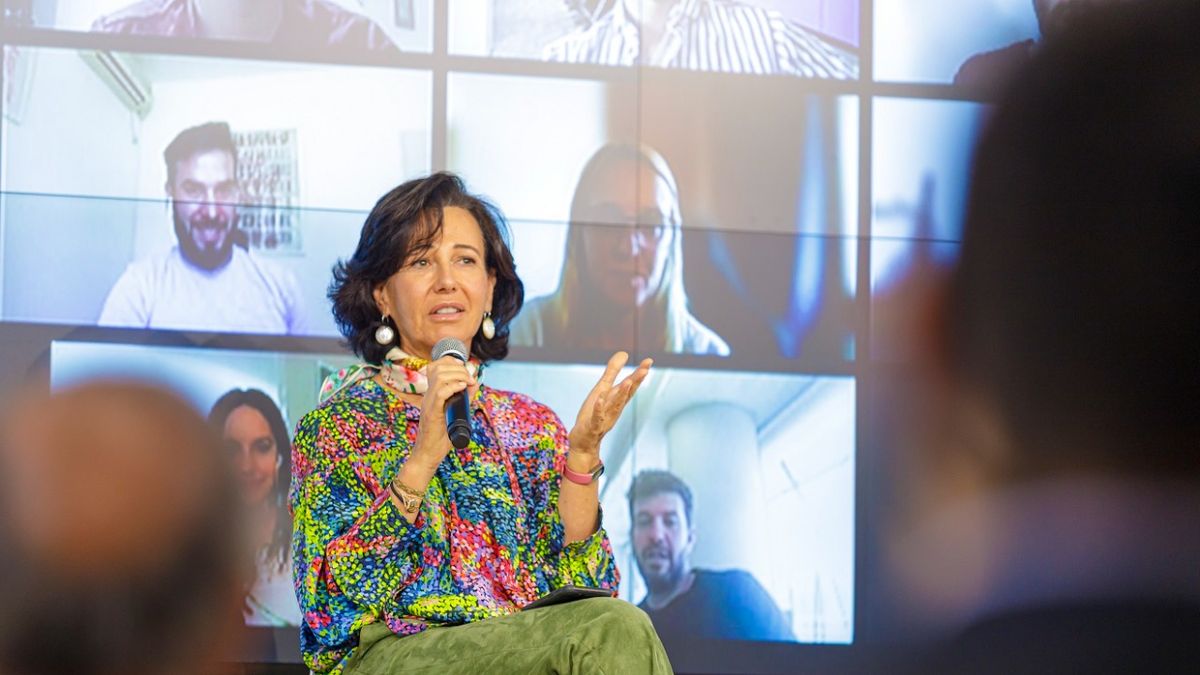The head of Banco Santander, Ana Botín, highlighted the benefits of balanced fiscal policies and demanded conditions of fair competition with technology companies that venture into finance. Her vision of the countries of the region.
“The Global economy It is processing changes due to the increase in the interest rate, in addition to the consequences of recent conflicts. But what is key today in the world is the relationship between China and USA“said the global president of Santander Bank, Ana Botín. This is how he began his presentation before an audience of numerous journalists from our region, within the framework of the 20th Santander-Latin America Meetingwhich takes place in the group’s Financial City, near Madrid. After this initial framing, he focused on our continent.
The content you want to access is exclusive to subscribers.
“Latin America is better than 10 years ago and there has been a strong commitment to the fight against inflation. The continent’s central banks – for the most part – have reacted quickly to the inflationary spike, although this obviously has its costs. The key doubt I have is whether this monetary policy is consistent with the fiscal policy; That is the challenge from now on,” Botín remarked.


He added that debt levels in general are quite high, and that also requires prudent fiscal policies. But he also expressed concern on the political level, about the decline of the ideas of free market. He cited a recent cover of The Economist, which wondered if the free market was already history. “A consensus is needed to move forward with reforms, and it is necessary to include public opinion there,” said the Santander leader. “Competition is often seen as a struggle between winners and losers, but if the competition is good, everyone wins and we compete to grow.” She gave the example of Spain. “Here we have a strong competitor like BBVA and that forces us to give our best; and it’s good for both banks and it’s good for Spain”he added.
However, on more than one occasion in his speech he stressed and claimed that competition has to be fair, and pointed to the digital banks. “We are already in full development of the digital economy, but we have regulations and tax structures that correspond to an industrial economy, which is being left behind. We have to update fiscal and tax approaches,” he demanded. “The fintech, digital banks or digital financial services have to compete with banks on equal conditions, and not like now when they pay less taxes,” he expressed. He also asked to have the same conditions of access to customer data as the bigtech, who access them very quickly. “We like to compete with technology companies, but we have to have the same standards if we do the same thing; and today technology companies pay few taxes,” said the head of Santander.
Country to country
Ana Botín led the expansion of Banco Santander in Latin America during the 90s and has a detailed look at the situation in the various countries of the region. About Brazil, foresees that the drop in interest rates will lower the cost of debt and that will improve the fiscal space, by reducing the cost of internal debt. “This may be an opportunity to simplify the tax system and bet on growth,” he commented. He insisted on valuing the importance of healthy fiscal accounts, and there he highlighted the case of Mexicowhere Santander recently lowered rates on mortgages. However, he warned about the impact of high global interest rates on economic growth. “This effect will be gradual and will be seen particularly in 2024,” she noted.
Botín defined herself as a worried optimist. “With Argentina “I’m a little more worried,” she said. She added that the bank in Argentina rents 20% and the credit / GDP ratio is very low (8%). “There is a great opportunity, but macroeconomic consistency is very important. It is what allows growth, because without growth there is nothing to distribute. You cannot have central bank always issuing to finance deficits,” he noted. Among the journalists were also the regional leaders of Santander, including the CEO for Argentina, Alejandro Buttiwho added that “in Argentina a stability plan and a budget with primary surplus of 1% of GDP.”
The banker also had words regarding the green financing. “The key objective of economies is to grow and for that investment is needed. Growth comes first, and of course it has to be sustainable growth, but the important thing is that there is growth. You cannot expect countries to do the energy transition without expanding the sectors where they are competitive, such as Argentina with gas.”
Finally, Botín described some strategic ideas of Banco Santander. “We have to be an open financial services platform and gain economies of scale,” he commented. “We have to be better than Nubank either Manzana and for that we must make economies and not do the same thing ten times, country by country. This does not mean losing local autonomy, but rather improving the service,” he concluded.
Source: Ambito




